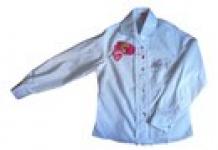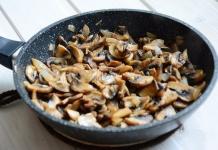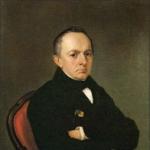Name:"Around the World in 21 Days"
Type of camp: summer health Camp
Location: Department of Diagnostics and Social Rehabilitation of Minors of the BU of the ChR "Urmarsky KTSSON" of the Ministry of Health and Social Development of Chuvashia
Dates:
Implementation period: camp change - 21 days.
Designed for children 7 - 15 years old.
Explanatory note
The importance of the summer camp for the improvement and education of children, the satisfaction of children's interests and broadening their horizons cannot be overestimated. It is known that every child needs a good rest, because his studies, life and health depend on it. The child becomes healthy and strong, self-confident. In order to have a good rest, to gain the necessary strength and energy, it is necessary that every child has the right and opportunity to choose rest and leisure at his own discretion, to do what interests him. Therefore, a summer health camp on the basis of the Department of Diagnostics and Social Rehabilitation of Minors of the BU CR "Urmarsky KTSSON" will be opened under the motto: "Camp - the territory of health."
The purpose of the activities of our department is the social service of citizens in difficult life situations, the realization of their rights and interests, and the promotion of the stability of the family as a social institution.
One of the fundamental activities of the institution is the social rehabilitation and prevention of social orphanhood of minors who find themselves in a difficult life situation. It is carried out by the stationary department of our center. In the summer period, the main task for the specialists of the department is to search for new forms and methods of organizing recreation and health improvement for minors who are clients of the institution, and to form their social skills.
Relevance of the program
AT recent times the issue of tolerance in modern society became widely covered in the media, at the state, regional and local levels. This is due to a decrease in the level of tolerance for people, the inability to tactfully and competently express one's position without touching aspects of other people's lives, which led to an increase in the growth of violence, aggressiveness, the expansion of conflict zones and conflict situations in interpersonal relationships that are destructive, destructive.
Particular attention of state structures is drawn to the negative trend of growing hostility, anger, mutual intolerance and cultural egoism among children and adolescents. Therefore, the urgent task of all social institutions today is the need to search for effective ways raising children in the spirit of tolerance, respect for the rights and freedoms of others who are not like you.
The most socially vulnerable are minors who find themselves in a difficult life situation, as the functions of social interaction with people around him (peers, adults). Institutions of social services for families and children have great opportunities for forming the foundations of tolerance in children of this category, which can be implemented in the process of rehabilitation activities.
In our opinion, to solve the problem of socialization and adaptation of minors who find themselves in a difficult life situation, as well as a tolerant attitude towards surrounding reality allows the organization of the summer holiday "Around the World in 21 Days" dictated by the above necessity.
We believe that as a result of the implementation of this program, children will have the opportunity to learn more productive ways of communicating and interacting with others through participation in diverse social and creative activities. This will allow to develop communication skills, self-respect, tolerance towards other people, to form an active life position and other qualities of a tolerant person, necessary for the assimilation of adequate models of behavior and effective functioning in modern society.
Goals and objectives of the program
The goal is to educate children and adolescents from socially vulnerable families in the basics of a tolerant attitude towards the world around them through the organization of active summer recreation and recreation.
Tasks:
1. Formation of a socially active life position and socio-moral motives for the behavior of an individual in the process of interaction with people of other ethnic and social communities.
2. Raising respect for the culture of another people through the expansion of common ideas about the customs and traditions of the peoples of the world.
3. Formation of a tolerant attitude towards members of one's family and families of one's peers.
4. Development of communication skills through the organization of cooperation and constructive interaction.
5. Revealing and developing the creative abilities of children through their involvement in different kinds leisure activities.
6. Formation of the need for a healthy lifestyle and responsibility for one's health.
Legend of the camp: “Once upon a time, at the very dawn of mankind, on planet Earth, people lived happily and peacefully. There were no differences between people in terms of wealth and poverty, nationality and religion. People felt like part of one big and friendly family. The younger ones respected the elders, took care of the weak, and there were never any quarrels and insults between them. But over time, many people began to treat each other badly, became evil and cruel.
A lot of time has passed since then, and people realized that only by uniting again, and starting to understand and listen to each other, it is possible to restore peace and harmony on planet Earth. To do this, we all need to go on an interesting journey together, in order to get acquainted with the traditions different countries world, to understand and accept the culture and customs of other peoples living on our planet.
The content of the project is based on the legend. The logic of the development of the shift is determined by the journey on the "Magic Train" through different countries and continents of the world. Therefore, each day is thematic and dedicated to getting acquainted with the customs and traditions of a particular country or continent. The blocks of the program are built on the basis of the types of traditions that participants get acquainted with in the process of “visiting the country”.
Necessary requirements for the organization of daily events: presence of the flag of the country, records of the national music of the country, a menu of dishes in the dining room, taking into account the specifics national cuisine, for example: Russia - cabbage soup, Japan - Japanese rice with fish, Italy - pizza, Greece - salad with Greek olives, etc. At the beginning of the shift, all children receive an "Amulet of Achievements", to which program participants attach a bead for each successful event, completed task or victory in competitions and competitions. Thus, during the program, each participant sees his achievements, and by the end of the shift, everyone receives diplomas of the shift participant and gifts.
|
Block name |
Directions of block events |
Forms and methods of implementation |
|
|
Cultural and historical traditions |
Formation of a positive attitude towards the cultures of other countries. Acquaintance with the traditions and customs of other countries of the world. |
Game programs, creative competitions, improvisation games, presentation of the cultural and historical tradition of a particular country. |
|
|
Sports and health traditions |
Formation of physical culture and the need for a healthy lifestyle. Prevention of drug addiction, alcoholism, tobacco smoking, HIV. |
Sports games and competitions, sports and entertainment games by stages, discos, dance competitions, invitation of a medical worker, poster competition, training in traditional sports of a particular country, etc. |
|
|
Family traditions |
Restoration of family traditions, education of a value attitude to family traditions. Building respect for members |
Entertaining game programs, conversations, KTD, dramatizations, role-playing games. Creation of a creative project on the theme "Tolerance in the family", a contest of greeting cards for family day, etc. |
|
|
Craft traditions |
Formation of skills and creative work. Demonstration of ways of tolerant interaction in creative activity for the purpose of mutual enrichment. |
Organization of creative workshops, master classes, KTD. Cooking national dishes. |
Program Implementation Mechanism
The program was implemented in three stages: preparatory, main, final.
1. Preparatory stage(May) includes the following events:
* A detailed study of the entire program "Around the World in 21 Days", the development of a calendar plan-grid, scenarios for all events, competitions, contests. Selection of personnel for work in the summer camp, distribution of responsibilities.
* Preparation of material and technical base.
* Acquisition of detachments (questionnaires of children and compilation of lists). Preparation of necessary documents. Carrying out the necessary initial diagnostics.
2. Main stage(June-August) includes the following activities to involve participants in active activities:
* Formation of laws and conditions for joint work, preparation for further activities under the program.
* Organization and holding of leisure and health-improving events of the shift. Holding thematic and final holidays.
* Interaction with the media to inform about the activities of the site participants.
* Tracking changes in the child's social position (application of testing, methods, survey of adolescents, teachers).
3. Final stage(September) - summarizing the implementation of the program "Around the World in 21 Days":
* Analysis of the effectiveness of the implemented program and holding a meeting to summarize the work of the summer playground, media coverage.
Expected results and performance evaluation criteria
|
Expected results |
Criteria for evaluation |
|
A system of summer leisure and recreation for minors who find themselves in a difficult life situation has been organized. |
Share of enrollment of adolescents out of the total number of children of the institution covered by activities for recreation and health improvement of children. The number of publications in the media. Implementation of planned activities (100%). Compliance of forms, methods of work with the age characteristics of children according to the program. Absence of registered cases of traumatism of children and workers during the summer period. The presence of positive feedback from students. |
|
Formation of a socially active life position and socio-moral motives of personality behavior |
The number of events organized to promote the development of children's social activity (promotions, competitions). The share of pupils included in the activities, out of the total number of children in the shift. The manifestation of new initiatives in socially significant activities, expressed in activities to develop a culture of interpersonal and social tolerance. |
|
The formation of a positively stable position towards the culture, customs and traditions of another people |
Emotional stability of the individual. Goodwill, courtesy, patience in relationships with representatives of another nation or social community. The presence of social responsibility and independence in their choice of action and deeds. Increasing the level of spiritual and moral qualities of the personality of minors. |
|
The presence of formed communication skills through the organization of cooperation and constructive interaction. |
Availability of readiness for interaction in various social interethnic situations. The absence of conflict situations between project participants and representatives of another nation or social community. High level of team cohesion of children. |
|
Formation of the need for a healthy lifestyle and responsibility for one's health. |
Number of activities contributing to the formation healthy lifestyle life. The absence of unrecorded cases of negative manifestations ( bad habits) from the side during discos and events. |
|
Children's creativity. |
The number of organized events that contribute to the identification and development of children's creative abilities. Positive results of psychological and socio-pedagogical diagnostics of minors. Participation of children in promotions, events, holidays, games. Availability of achievements based on the results of the events held (positive reviews, certificates, diplomas, etc.) |
|
The presence of a formed tolerant attitude towards members of one's family and the families of one's peers |
Positive results of psychological and socio-pedagogical diagnostics of minors. The number of organized events that contribute to the formation of a tolerant attitude towards members of one's family and peers. |
Organization of interaction of the health camp with round-the-clock stay of children "Around the World in 21 Days" with the society
Coordination - pedagogical component
in program work.
Plan - grid by day
|
1 day 1. Formation of detachments of 5-10 people. 2. Choice of the name of the detachment, emblem, motto, attribute. 3.Official opening of the shift: Turntable "Around the World" 4. Disco "Oh, youth!" |
2 day 1. Work in a creative workshop: making a squad mascot from salt dough. 2.Sport event 3. Weekend hike "Flower Valley" |
3 day Russia 1. Traditions of Russian cuisine (cooking Russian dishes). 2. Folklore holiday "Merry Fair". 3. Sports game "Be friends with each other" |
Day 4 France 1. Competition "Podium d Art" 2. "Love at first sight" 3.Competition of flower bouquets. Departure to nature. |
Day 5 North America 1. Competition of wall newspapers "Family Traditions of Americans". 2. Game by stages "Indian trail" 3. Drawing competition "The nature of our beauty" |
|
Day 6 Italy 1. KVN between staff and children 2.Traditions of Italian cuisine "Festive Pizza" 3. Summer cross "Friends are known in sports." |
Day 7 Egypt 1. Work in a creative workshop. 2 Team game "Treasures of the East" 3.Collection medicinal herbs"Green Country" |
Day 8 Greece 1. Sports and recreation program "Olympic Games". 2. Life safety lessons - conversation " poisonous plants, insects". |
Day 9 Greece 1. Evening of myths and legends, dramatizations, role-playing games. 2. "Catch a fish big and small" - a competition of fishermen. 3.Travel on the world map world day oceans "Around the world in 1 hour". |
Day 10 desert island 1. Day in reverse. Comic football. 2. Collective hike "Top-top-stomping tourist." 3. Intellectual quiz |
|
Day 11 India 1. Chess and checkers tournament. 2.Startineydzher "Disco dancer". |
day 12 Japan 1. Work in a creative workshop: making Japanese souvenirs (origami, ikebana, rock garden). 2 Japanese art competition. |
day 13 Denmark 1. Competition "Uncle Andersen's Tales". |
Day 14 Brazil 1. Forest race "Brazilian jungle". Carnival in Rio de Janeiro. |
day 15 England 1. Elections of Parliament and the President of the Globe |
|
day 16 Oceania 1. Day of Neptune |
day 17 Africa 1. Work in a creative workshop: making gifts. 2 Expedition "Meeting with the natives". |
Day 18 Sweden 1. Role-playing game "Wedding ceremony". |
day 19 Antarctica 1. Summer New Year 2. Penguin relay. |
day 20 Russia 1. Farewell bonfire "Friendship of peoples". 2. Creation of a symbol of tolerance. |
|
21 day 1. Closing the shift, launching balloons. |
||||
16.05.2018 26.08.2018
Around the world
Summer holidays - it's time to hit the road for new experiences, emotions, knowledge, experience!
City shift - "Around the World" was created specifically for young travelers who want to hit the road every day, discover something new and interesting, plunging into the history, culture and customs of different countries of the world.
doors Family club-apartment “ Happy people” are opened for you, young travelers, explorers, conquerors, and just those who are not indifferent to everything new. We will learn, study, discuss, argue, get to the truth, and, in general, expand our horizons.
Holidays with us are a great opportunity to make new friends, learn about the cultural characteristics and traditions of different countries, meet interesting people, visit interesting places, and have a fun, varied time and relax from your parents.
Every day we will make a “flight” from one country to another, where we will get acquainted with crafts, national holidays, highlights of history, as well as culinary features and many other things. And all this without tedious flights on airplanes.
During the time spent on the journey, the children will receive additional knowledge about history, geography, culture and art. Every day there are excursions, master classes, and, of course, walks in the fresh air.
About the camp
There is very little time left before the start of the holidays, and if you don’t want your child to spend this time not at the computer within four walls, but to take part in a real adventure, for the benefit of themselves and their health, playing with peers and at the same time developing and learning something new, then our program "Around the World" was created especially for you!
Holidays are the time when you can: 
- go on a trip;
- to rest from schoolwork, from textbooks and notebooks;
- visit interactive tours;
- get to know representatives of different cultures;
- take a walk in the fresh air;
- look around and see what other opportunities our city gives us;
- get creative.
On the program, the guys will be able to feel like real travelers and create their own Country Guides.
Club premises
The city shift takes place on the basis of the Happy People Family Club-Apartment, in the city center in a quiet courtyard on Taganka. Not far from the club there is a corner of ancient Moscow - the Krutitsy Compound, the historic Novospassky Monastery with a picturesque square and a pond, as well as the green Tagansky Park.
 In the club, for the convenience and comfort of young travelers, there are:
In the club, for the convenience and comfort of young travelers, there are:
- a spacious hall for classes, where physical culture warm-ups, games and dynamic pauses are held daily;
- creative workshops where we will experiment and create;
- kitchen-living room, where delicious and healthy breakfasts, lunches and afternoon snacks;
- changing rooms and showers.
Whatever the guys do, no matter what journey they go, they always remain under the supervision of teachers and counselors.
Price:
1 shift: May 28 - June 09 (11 days) - 28 900 26 505 * rub.
2 shift: June 13 - June 22 (8 days) - 22 600 21 185 * rub.
By day: The cost of any day - 3 200 2 945 *
* The price is valid until 15.05.2018
* For participants of previous programs, two children from one family and large families, a discount is provided.
Included in the price:
- full service under the Program;
- entry tickets;
- excursion service;
- travel to places of excursions;
- participation in master classes and all consumables;
- 3 meals a day;
- access to all photo and video materials of the Program.
General program
Throughout the shift, young travelers every day will:
- go to a new country;
- learn about the culture, customs, holidays and cuisine of different countries
- attend excursions;
- engage in creativity at master classes;
- communicate with like-minded people;
- eat deliciously (second breakfast, hot lunch and afternoon tea);
- walk and play in the fresh air (we hope the April weather will allow us to do this) or participate in active games in the hall.
Schedule*:

09.00 – 09.45 - Gathering of participants
09.45 – 10.15 - Introductory presentation of the topic of the day
10.15 – 10.30 - Light breakfast
10.30 – 14.00 - Excursion
14.00 – 14.30 - Hot lunch
14.30 - 15.00 - Rest time (reading, drawing, etc.)
15.00 – 16.00 - Walk
16.00 – 16.30 - Afternoon snack
16.30 - 18.00 - Master class
18.00 - 18.15 - Summing up the day
18.15 - 19.00 - Interest classes: cinema room, board games, etc.
19.00 - End of the program
*depends on the day of the Program. On the day of long field trips, the daily routine changes.
Program by day:
May 28 - Germany , is, first of all, mechanical engineering, which we can get acquainted with at the Museum of Retro Cars.
May 29 - Japan , with its customs and beautiful gardens, to admire which we will go to the Botanical Garden.
May 30 - France with its Great Impressionists, whose works are presented in the Gallery of European and American Art of the 19th-20th centuries, the Eiffel Tower, baguettes and eclairs.
May 31 - America , a multifaceted country with cowboys that we can spend a little time in the Horse Club, the Grand Canyon, Hollywood and New York.
June 01 - Peru . Meet with the traditions of the Indians, we will go to the Museum of Nomadic Cultures. We will find out who the Incas are and, of course, we will go to the holiday.
June 04 - Italy famous for its cuisine. And not only pizza and pasta, but also excellent cheeses, which we can taste at the Cheese Factory.
June 05 - Canada . A northern country in which huskies help people a lot in winter. Why and how we will find out by going to visit them.
June 06 - Egypt . Where not only the pyramids and the Sphinx, but also one of the largest libraries of antiquity. Let's see how it differs from the modern library.
June 07 - Kenya , a trip that will be remembered first of all thanks to the Safari, on which we will go to the Zoo.
June 08 - Kingdom of Great Britain - the union of four historical national regions: England, Scotland, Wales and Northern Ireland. Its capital is London. The first city where gas lighting became part of the urban infrastructure at the beginning of the 19th century. How it was learned in the Museum "Lights of Moscow".
June 13 - Turkey heir to the traditions of the Great Ottoman Empire, and who can tell about the country better than its inhabitants? We will go to the Turkish Cultural Center to meet them.
June 14 - China . The Chinese civilization is one of the most ancient on the planet. And calligraphy in China has always been considered the most important art, to learn about which we will go to the Museum of Calligraphy.
June 15 - Russia a huge country, the population of which belongs to very different cultures. We will get acquainted with small nationalities in the Museums of nomadic cultures.
June 18 - Australia the only country occupying an entire continent, which is washed by the ocean on all sides. We can learn about the inhabitants of the depths in the Oceanarium.
June 19 - Greece . Modern world I owe a lot to ancient Greece. Why, we will definitely find out, but a trip to the Greek Hall of the Pushkin Museum will help us in this.
June 20 - Finland . Forest and lake country, famous for the balanced character of its inhabitants. To immerse ourselves in this state, we will go fishing in the Fishery.
21st of June– India . The culture of India was formed at the junction of eras and traditions. And what better conveys the culture and traditions of the country for children than a fairy tale? Therefore, we will see Aladdin's Magic Lamp at the Obraztsov Puppet Theater.
June 22 - Spain with its holidays, carnivals, architecture, Salvador Dali and sangria.
The documents
In order for your child to join us, please bring with you:
- Help 079 / y (take it from the school doctor or at the clinic)
- Certificate of absence of contacts (take it three days before the start of the shift).
- copy insurance policy child.
- A copy of the child's birth certificate or passport.
- Passport of one of the parents or legal representatives.

R. Maina
Program Information Card
Full name of the program | Comprehensive, short-term program children's day-care recreation camp "AROUND THE WORLD IN 18 DAYS" |
|
Purpose and objectives of the program | Creation of a unified educational and sociocultural space that ensures the physical and mental health of a growing personality, the activation of its creative potential and self-expression in creative activity, the preservation of psychological health and emotional well-being, the formation of social and moral stability in children, tolerant consciousness, readiness for life in children team. Unleash the creative potential of students by means of gaming, creative activities; · create a system of interesting, varied, active and educational recreation and recreation for children in the summer; create an atmosphere of psychological comfort for each child; Improve physical health. |
|
PROGRAM
summer health camp
with daycare for children
MAOU DOD "Center for Children's Creativity"
"AROUND THE WORLD IN 18 DAYS"
(complex, short-term)
Maina -2017
EXPLANATORY NOTE
Summer holidays make up a significant part of children's free time. This period is most favorable for the development of their creative potential, improvement of personal capabilities, familiarization with the values of culture, entry into the system of social relations, implementation of their own plans, satisfaction of individual interests in personally significant areas of activity.
Summer is the time for games, entertainment, freedom in choosing activities. This is the period of free communication of children. During the summer holidays, there is a relaxation of the tension accumulated over the year, the restoration of expended strength, health, and the development of creative potential.
The program of the children's health-improving day camp "AROUND THE WORLD IN 18 DAYS" provides for the organization of summer holidays for children in the conditions of a temporary children's team.
The development of this program for the organization of summer holidays, recreation and employment of children was caused by:
- an increase in the demand of parents and children for organized recreation for schoolchildren;
- modernization of old forms of work and the introduction of new ones;
- the need to use the rich creative potential of students and teachers in the implementation of the goals and objectives of the program.
The program is universal, as it can be used to work with children from various social groups, of different ages, levels of development and health status.
This program includes diverse activities, combines various areas of rehabilitation, recreation and education of children in a temporary children's team.
By duration the program is short-term, i.e., it is implemented during 1 shift (June). The optimal number of participants is 20 students.
The main composition of the shift participants are children aged 6-15 years.
CONCEPTUAL JUSTIFICATION OF THE PROGRAM
Summer holidays are the best and unforgettable time for developing creative abilities and improving the capabilities of a child, involving children in new social ties, satisfying individual interests and needs.
This is the period when children can “make” their lives full of interesting acquaintances, useful hobbies and activities, they can learn to sing, dance, play, and spend their free time usefully. Indeed, nowhere is the child revealed as in games. Here, in addition to personal interests, the child, without suspecting himself, develops his physical and moral qualities, learns to be friends, empathize, go to the rescue without looking back, learn to “beautifully” lose and win.
The main activity of the day camp is aimed at developing the personality of the child and including him in a variety of human relationships and interpersonal communication with peers. A children's camp, given its specific activities, can give children a certain holistic system moral values and cultural traditions through immersion of the child in the atmosphere of the game and cognitive activity of a friendly micro-society. The camp gives him the opportunity to discover the positive qualities of a personality in himself, to feel the significance of his own "I"; to realize oneself as a personality that causes a positive assessment in the eyes of other people; increase self-esteem; go out to new level communication, where there is no place for aggression and rudeness.
Explanatory note
"Summer is a small life!". Especially for children. Many guys want to spend this time in such a way that they have time to completely relax before the next one. school year, make new friends, learn a lot of interesting things so that the impressions from these days last for a long time, at least until next summer. And in general, to make it fun, exciting, in short, “cool” or “healthy about rovo".
The summer period is optimal for the creative development of children. The children in the children's health camp, in a relaxed atmosphere, can try on different roles, which will help them find their place in life in the future. And also summer is a time when children can communicate a lot and freely, thereby expanding the scope of their communication and socializing in society.
During the summer holidays, there is a relaxation of the tension accumulated over the year, the restoration of expended strength, health, and the development of creative potential. These functions are performed by a summer camp with a day stay for children.
In this regard, this program was written, which is called "Around the World in 20 Days." The program is aimed at organizing educational work for 150 children in the camp "Ural Kamushki" on the basis of MKOU DOD "TsDT".
Conceptual approaches to the content and organization of the shift are based on the principles of humanistic pedagogy:
Recognition of the personality of each child as the highest social value
Respect for the individuality, uniqueness and originality of each child
Creating a Success Situation
Respectful relationships between adults and children.
The program "Around the World in 20 Days" is intended for children and adolescents aged 6-18 and is based on the plot - role play. The program is aimed at children of primary, middle and senior school age, in accordance with the age characteristics and capabilities of children.
The services and opportunities of the city institutions are actively used to organize work on the rehabilitation and recreation of children.
The program is based on the principles of continuity, systematicity and consistency, a holistic approach to personality development - in a combination of collective, group and individual forms of work, the developing nature of activity - in organizing activities that are feasible for a particular individual, stimulating creativity and independence.
The program is short-term (implementation period - 19 days), complex (implemented in several areas), activity-based (children and teachers are the organizers of the shift).
Municipal budgetary educational institution"Gymnasium No. 1 of the city of Pochep, Bryansk region"
Station travel game
"Around the World"
(for summer school camp)
Pochep
2015
AROUND THE WORLD CAMP "FUN JOURNEY"
Target:
to develop the intellectual sphere of students, ingenuity, observation, speed of reaction, eye, courage; to cultivate comradely mutual assistance, tolerance, collectivism.Features of the formation of teams: teams should have no more than 10 people (mandatory: boys and girls different ages); the team independently chooses a captain, comes up with a name.
Game conditions
Each detachment receives its own itinerary, which indicates the travel plan for the stations, and an evaluation sheet. According to the route sheet, the children go to their stations. Arriving at the station, the units perform tasks that are evaluated in points.At the end of the game, the results are summed up, a summary table of the journey through the stations is compiled. Rewarding on the line of winners and participants..
Scenario
Hello, hello, hello!
We're glad to welcome you.
How many wonderful smiles
We see today, now!
Our holiday is about to begin
And we're on our way.
With wonderful friends
Don't forget to take it on the road.Guys, are you ready to go on a fun journey?(children answer) Then carefully listen to the rules that should be observed during our game.
Rules: The teams follow the stations in accordance with their route list and perform the tasks proposed to them. The route sheet notes the score that the team receives at each station from the jury that evaluates the work of the team. Time spent at each station - no more than 5 minutes. After the time expires, the commands are sent to the next station. It should be noted that teams must move from station to station only at a walk (do not run!), And complete tasks with the whole squad (without forgetting anyone). And if these rules are violated, the jury has the right to deduct points earned from you.
As soon as all the stations are passed, we meet again in this hall for debriefing. So, the rules are considered and it remains only for us to give a start. Well, for starters, I will give you route sheets that you will follow (card distribution ). You are ready? (children answer)
1 station "Zagadkino". Solve riddles about summer.How many correct answers, how many points the team gets.
MYSTERIES ABOUT SUMMER
1. The sun bakes, the linden blossoms.
Rye ripens, when does it happen?
(summer)
2. Well, which of you will answer: Not fire, but it burns painfully, Not a lantern, but it shines brightly, And not a baker, but bakes? (sun)
3. In the morning, the beads sparkled, All the grass was tangled up, And let's go look for them in the afternoon, We are looking, we are looking - we will not find. (dew)
4. Molten ArrowThe oak fell down near the village. (lightning)
5. It is green, bouncy, Completely non-staining It chirps in the meadow all day, He wants to surprise us with a song. (grasshopper)
6. Moved by the flowerAll four petals. I wanted to rip it off And he fluttered and flew away(butterfly)
7. Red beads hangThey look at us from the bushes Love these beadsChildren, birds and bears. (raspberry) 8. Now purple, then blue, He met you at the edge. They gave him a very sonorous name, But he will hardly be able to just ring. (flower bell) 9. Red, juicy, fragrant, Grows low, close to the ground. (strawberry)
10. After the rain happens, half the sky closes. The arc is beautiful, colorfulAppear, then fade. (rainbow) 11. Everyone, I think, will know If he visits the field, This little blue flower A well-known … (cornflower) 12. Hairy, green, She hides in the leaves. Even though there are many legs Still can't run. (caterpillar)
13. On a green fragile legThe ball has grown by the track. The breeze rustledAnd dispelled this ball. (dandelion)
14. Oh don't touch me I'll burn it without fire! (nettle) 15. The caftan on me is green, And the heart is like a kumach. Tastes like sweet sugar It looks like a ball. (watermelon)
16. Planted a seed - raised the sun. (sunflower) 17. Two sisters: green in summer, By autumn, one turns red, The other is green. (currant red and black)
18. Round, ruddy, I grow on a branch. Adults love me And little kids. (Apple)
19. Not motors, but noise, Not pilots, but fly, Not snakes, but sting. (wasps)
20. Not a beast, not a bird, a sock like a knitting needle.
It flies - it squeaks, it sits down - it is silent.
(mosquito)
2
bowling station.
7 pins are placed in a row. Each participant from a certain distance must knock down all the pins with the ball. Points are calculated by the number of pins knocked down by the whole team.
3 station Pathfinder.
Wooden cubes (for team 1) and triangles (for team 2) are hidden in advance in the school garden. Task: find the figures in 5 minutes. How many figures are found, so many points the team receives.
4 station "Sports".
jump rope
Each participant jumps on a rope. The total number of jumps is counted.
5 station "Understand me".
Each participant receives a piece of paper with a task. With the help of facial expressions and gestures, depict what is written, and the team must guess. How many situations are guessed, so many points the team receives.
Man eats ice cream.
Man eats long pasta.
Knead the dough and make pies.
Thread the needle and sew.
Fry fried eggs.
A man eats undercooked shish kebab.
Take money out of your wallet and count it.
Pack things in a suitcase.
Kindle Fire.
Man eats watermelon.
6. station "Song".
Remember and sing songs about friendship and friends. How many songs, so many points the team receives.
7. station "Sharpshooter".
Each team member needs to hit the basketball hoop from a certain distance. As a result, the total number of hits is summed up.
8.station "Game" "Penguins". Children go by train and shout: "I'm a penguin, I'm carrying an egg, oh, how cool, good!" Then everyone should squat down and go in single file to shout the same words. (Assessed from 0 to 5 points)
9. Station "Identify by touch."
It is necessary to prepare a bag, pouch or opaque bag in advance, put various items in it. Playing in turn, without peeping, must feel for objects with their hands. Then the whole team write down all the items. How many guessed, so many points and get
10 station "Rules of conduct". (Answers underlined)
What will you do if...
1. What will you do if you get lost in a big city, etc.?
A) You will look for your parents yourself.
b) Ask an adult for help.
C) Advertise.
2. If you are treated to candy stranger outside, what are you going to do?
A) Refuse food.
b) Take it and run away.
c) Take it and eat it.
3. If you see a package left by someone in the transport, what will you do?
A) Take it.
b) Give it to a friend.
C) Tell the controller or the driver.
4. If someone is chasing you on the street, what will you do?
A) Stop and sing: “We are not afraid of the gray wolf”;
B) Run to a crowded place and ask for help from a policeman or an adult.
C) You will run towards him with a cry: “I will gore!”.
5. Continue the phrase: “If we are called to swim, to act on TV, they promise to give sweets, answer firmly ...”
A) yes
B) No
B) think
6. If someone is drowning before your eyes, what will you do?
a) Wave to him.
b) Ask an adult for help.
C) Try to save yourself.
7. If a dog approaches you without a leash and a muzzle, what will you do?
A) run fast.
B) Shout "Face!".
C) You will remain standing still and command the dog to “Stand!”.
8. What should you do if your nose bleeds?
A) Lean forward a little, pinch your nose and raise your other hand up.
B) Shout as loudly as possible: “Mommy, help!”.
C) Immediately call the rescuers.
9. Mote got into your eye, you ...
A) Shake your head properly
B) Rinse with boiled water;
C) Wait until it goes away.
10. You spilled hot tea on yourself, what should you do first?
A) Substitute the burnt place under a stream of cold water;
b) Lubricate with oil;
C) Lubricate with green.
11. On a walk you got frostbite on your fingers, what will you do?
A) Rub it with snow.
b) Take a hot shower.
c) Get a light massage.
12. What big mistake did Little Red Riding Hood's grandmother make?
a) Opened the door to a stranger.
B) She didn’t offer tea to the Wolf.
C) I didn’t sing a song to the Wolf.
Summing up and awarding teams in nominations:
"Most Musical"
"Most Creative"
"The most sporty"
"Most cheerful"
"The most talented"
"Most friendly"
Thanks to the teams for playing! See you soon! Goodbye!




















